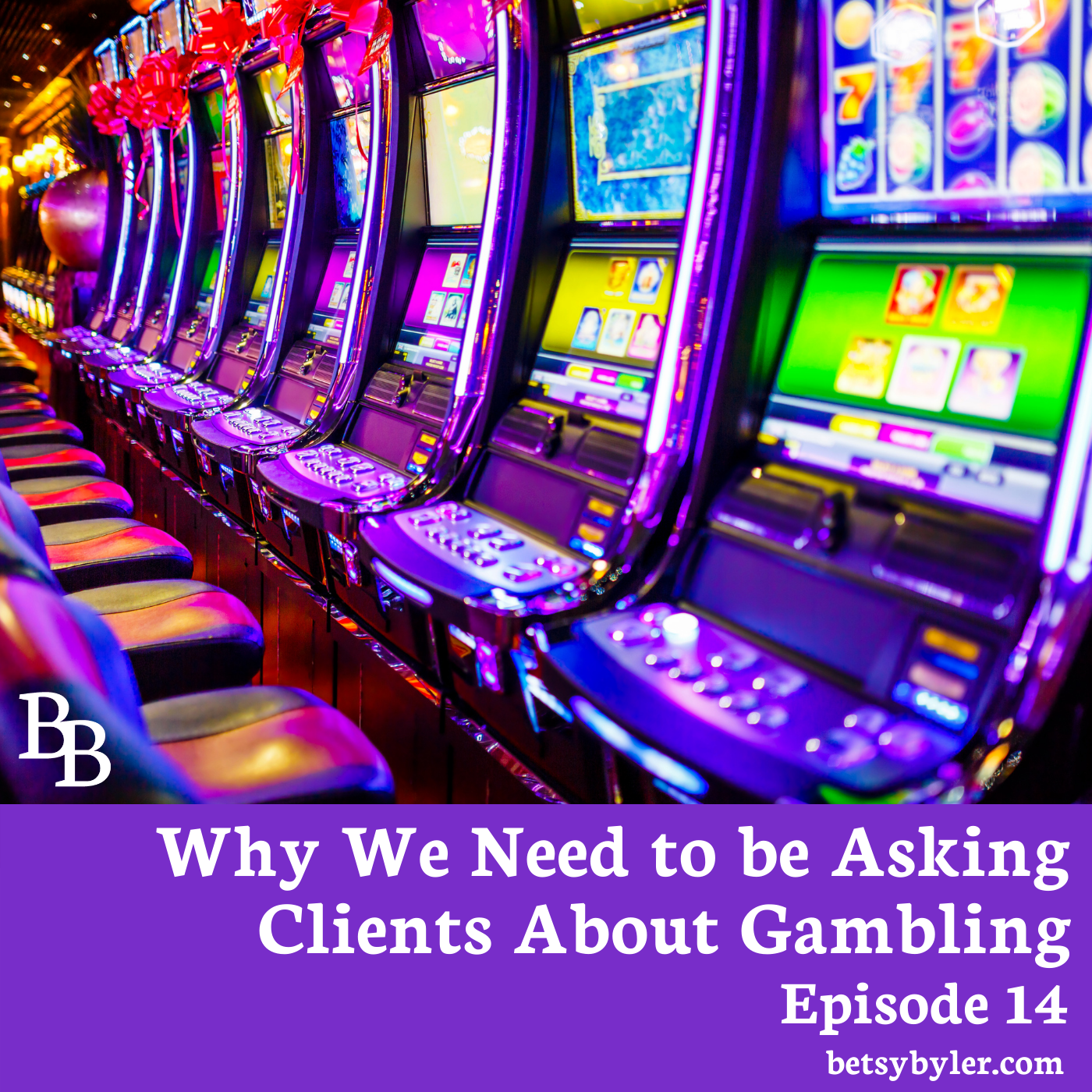Gambling Addiction: Why We Should Be Checking In
- Author
- Betsy Byler
- Published
- Mon 21 Dec 2020
- Episode Link
- https://betsybyler.libsyn.com/gambling-addiction-why-we-should-be-checking-in
- What do mental health therapists need to know about gambling?
- What types of gambling are there?
- What’s the connection to mental health?
Gambling is a pretty specialized topic. Mental health therapists are a logical place for problem gamblers to show up. I’m making the case that we should be checking in about this with each client. Even if we only find a few problem gamblers over our careers, the freedom of having that secret out in the open can make all the difference.
In this Podcast:
**There is a sound issue about midway through where there's a small echo. It resolves later in the podcast. I apologize for the sound issue!
- More things “count” as gambling than we typically think of.
- Gambling is trading something of value and hoping for something of greater value.
- Gambling disorder is a diagnosable condition with real tolerance and withdrawal syndrome.
- Loss-chasing is what sets symptoms apart from substance addictions
- There are three types of games: games of pure chance, games of mostly chance and games of mostly skill
- The most popular and most lucrative of all gambling (for the house that is) continue to be slot machines.
- Slot machines are very different than the days when they had physical reels.
- Electronic gaming machines (a more accurate term for what passes as slot machines today) are using specific mechanics to reinforce continued play.
- It’s suggested that EGM’s are deliberately used to get gamblers hooked
- Approximately 90% of a casino’s income comes from 10-20% of their patrons. These represent the problem gamblers.
- Casino’s are known to extend “credit” to problem gamblers in large quantities to keep them playing.
- Depression is highly correlated with gambling. Anxiety, personality disorders and Bipolar disorder are correlated as well.
- Alcohol abuse is also highly correlated with problem gambling along with use of drugs (stimulants especially).
- There are high suicide rates among problem gamblers.
- A phenomenon that is being considered for inclusion as “gambling” is loot boxes.
- It is suggested that gaming companies are using the same tactics for loot boxes as the casinos are.
- There is concern that loot boxes are creating a generation of problem gamblers and targeting people when they are at a vulnerable stage of development.
- There are some screeners available to help therapists assess this gambling.
